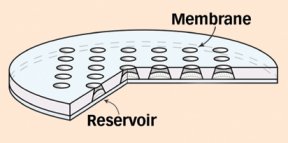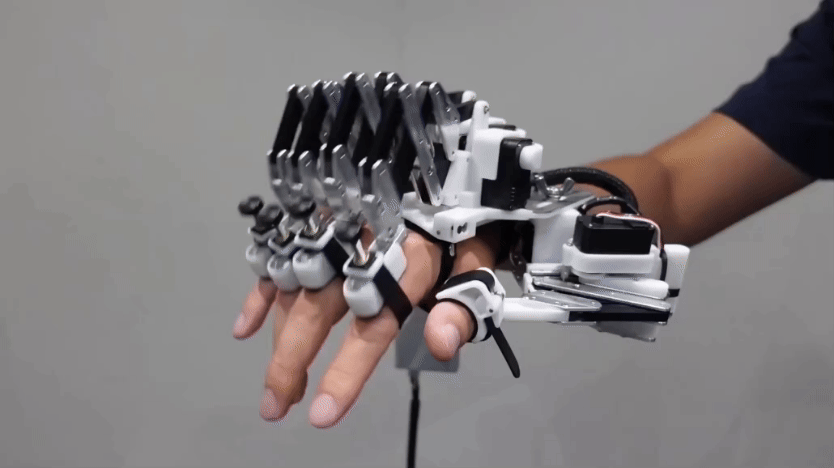A micro-dose of your own medicine
Medicine-delivering microchips implanted in the body could replace some injections and pills.
If getting an injection isn’t your idea of a good time, there’s some promising news. Scientists have developed an amazing little device that could replace some injections—and pills, too.
 |
|
This plastic chip holds a series of cavities, or reservoirs, sealed with a plastic membrane. Implanted in the body, the membranes would dissolve at different rates, releasing their contents at set times.
|
| Adapted from Nature Materials |
The new device is a microchip that can be implanted in your body. The chip is about the size of a dime and is as thin as a piece of paper. On its surface are several small, sealed pockets for storing drug doses. These doses can be released into your body one by one at different times.
Each pocket is sealed with a different type of polymer, a material that has very long molecules. (Some of the natural substances in your body, such as proteins, are made of polymers.) By varying the length of the polymer molecules in the seals, the scientists can control when the drugs in each little pocket are released. Seals with longer polymer molecules take longer to break. Seals made with shorter polymer molecules will be the first to break and release drugs into your body.
With an implanted chip, you wouldn’t need to remember to take your medicine because the chip releases the drugs into your body for you, on schedule. The chip would also work well for certain types of vaccines that require several doses. Instead of making lots of trips to the doctor—and getting lots of injections—you’d only need to go once to have the chip implanted, and then the chip would take care of the rest.
So far, Robert Langer and his team at the Massachusetts Institute of Technology have made chips that can deliver drug doses for nearly 5 months. And after a chip has dispensed all of its medicine, it dissolves slowly inside your body.
This sort of chip isn’t available to doctors yet, but when companies start making it, your doctor will then be able to say, “This really won’t hurt a bit!”







